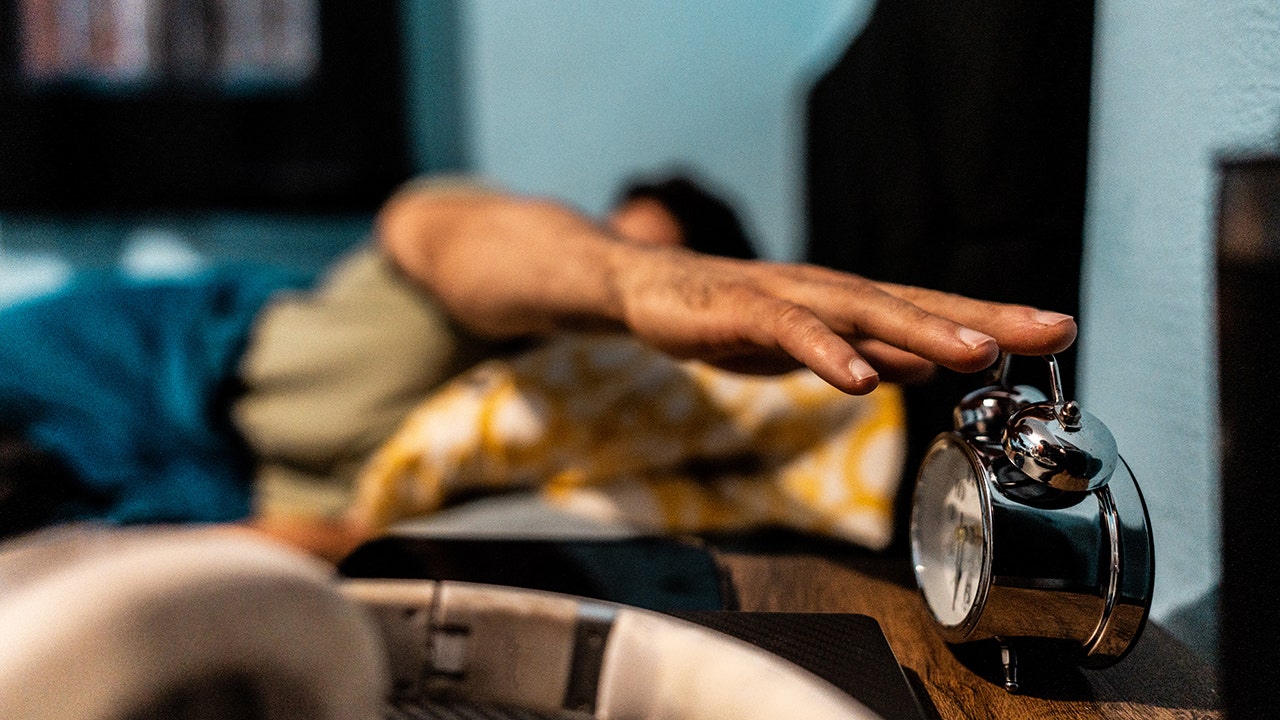NEWYou can now listen to Fox News articles!
As Americans prepare to turn their clocks back this weekend, experts say your diet may determine how sluggish or energized you feel in the days ahead.
Though getting an extra hour of sleep should make you feel more rested, the one-hour daylight saving time shift can actually throw off the body’s circadian rhythm, the internal clock that runs on a 24-hour light-and-dark cycle, especially since many people are already sleep-deprived, according to Tufts University. The result can feel like jet lag, bringing grogginess, hunger swings, slowed metabolism and even mood changes.
Experts say the effects are especially pronounced among shift workers, children and teens, older adults, those with sleep or heart conditions and those who frequently travel across different time zones.
HAPPINESS EXPERT SHARES 6-STEP MORNING ROUTINE THAT BOOSTS MOOD AND PRODUCTIVITY
“Our internal circadian rhythm, which is monitored by light, meal timing, and hormone release, can fall behind by several days when we change our external clocks,” said Neelofer Basaria, Ph.D., a Texas-based public health expert and certified health and wellness coach. “It’s not fun for our body.”
Fortunately, there are simple ways to fight back. From protein-packed breakfasts to melatonin-boosting foods, what you eat and when can help your body’s internal clock reset faster. Here are five expert tips to help you beat the clock.
1. Start your day with protein
“The best way to maintain constant levels of energy is to eat balanced meals consisting of protein, complex carbs and some fat,” said Robin DeCicco, a certified holistic nutritionist in New York City. “Equally important is to eliminate sugary, refined carbs during meals as this food group is known to cause a rapid increase in energy followed by dips, blood sugar crashes and sluggishness.”
SKIPPING BREAKFAST AND EATING DINNER LATE LINKED TO SURPRISING BONE HEALTH RISK
A protein-rich breakfast, which could include eggs, yogurt or nut butter, can help steady blood sugar, boost alertness and signal to your body that it’s time to be awake, she and Basaria agree.

2. Eat dinner earlier and keep it light
Basaria also recommends eating dinner a little earlier after the clocks go back. “Since our circadian system also uses food intake as a timing signal, eating meals at regular times or shifting dinner a bit earlier for the first three to four nights can help the brain re-establish the body’s clock,” she told Fox News Digital.
THREE COMMON FRUITS CAN HELP AMERICANS FALL ASLEEP FASTER AND SLEEP BETTER
She also suggests pairing this with a consistent dim-light routine in the evening. Research has shown that dimming lights in the evening helps trigger melatonin production and signals the body to wind down, improving sleep quality and easing the shift in your internal clock.
3. Add melatonin-friendly foods
Foods like turkey, cherries, pumpkin seeds and kiwi can naturally support the body’s melatonin production and improve sleep quality, Basaria said.

TEST YOURSELF WITH OUR LATEST LIFESTYLE QUIZ
Research shows that tart cherry juice can boost melatonin levels and improve sleep quality, while kiwi may help you fall asleep faster and sleep more soundly. Pumpkin seeds and turkey contain magnesium and zinc, which further support melatonin production and relaxation before bed.
4. Skip sugar and caffeine late in the day
Basaria also recommends avoiding caffeine after 2 p.m. and eliminating high-sugar snacks close to bedtime because it can delay melatonin release and exacerbate sleep disruption.
DeCicco said her favorite way to ward off sleepiness is by staying active. “Sunlight and fresh air help to make you feel invigorated and energized,” she said.
CLICK HERE FOR MORE LIFESTYLE STORIES
Staying hydrated is key, she added: “Dehydration is one of the leading causes of fatigue.”

5. Stay consistent and balanced
Overall, DeCicco says staying consistent and balanced by eating at regular times and including a mix of protein, complex carbs and healthy fats can help maintain steady energy and prevent crashes, making it easier to adjust to the time change.
“If you don’t have a consistent exercise routine as of now, start slow and add on,” she said. “Eating smaller meals throughout the day also requires less energy to digest and helps you stay active and alert.”
Read the full article here







